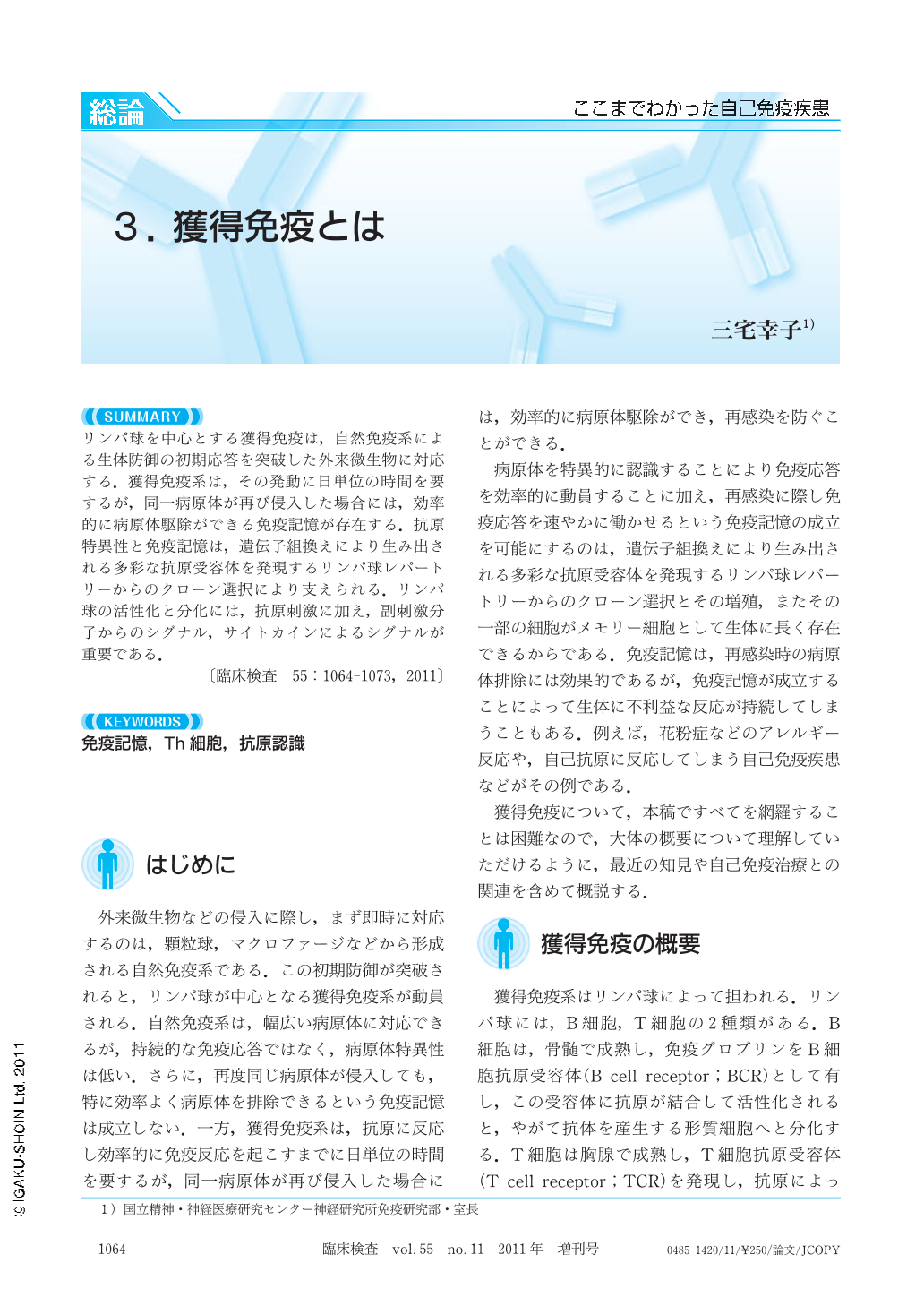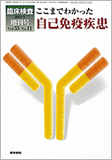Japanese
English
- 有料閲覧
- Abstract 文献概要
- 1ページ目 Look Inside
- 参考文献 Reference
リンパ球を中心とする獲得免疫は,自然免疫系による生体防御の初期応答を突破した外来微生物に対応する.獲得免疫系は,その発動に日単位の時間を要するが,同一病原体が再び侵入した場合には,効率的に病原体駆除ができる免疫記憶が存在する.抗原特異性と免疫記憶は,遺伝子組換えにより生み出される多彩な抗原受容体を発現するリンパ球レパートリーからのクローン選択により支えられる.リンパ球の活性化と分化には,抗原刺激に加え,副刺激分子からのシグナル,サイトカインによるシグナルが重要である.
An adaptive immune response is characterized by the selection and amplification of clones of lymphocyte-bearing receptors that recognize foreign antigen. Based on the selection and expansion of antigen-specific lymphocytes and subsequent generation of memory lymphocytes, an adaptive immune system has the unique feature of immunological memory which enables us to make an immediate and stronger response against an infections agent previously exposed. Lymphocytes have two distinct populations, B cells which mediate humoral-mediated responses and T cells which mediate cell-mediated responses. Recent advances in therapies for autoimmune diseases targeting the molecules involved in adaptive immunity have provided for us important insights into the mechanisms underlying autoimmune diseases. In this section, an outline of adaptive immunity will be discussed in an effort to understand autoimmunity.

Copyright © 2011, Igaku-Shoin Ltd. All rights reserved.


